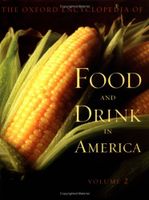Advertisement
Organic Food
Appears in
Published 2004
The term “organic” has been both a socially and a legally defined category of food that is claimed to be more natural than artificial in both its production and its preparation. Organic foods are now the central element of American health foods. Some would argue that until the industrial agricultural complex of the twentieth century, all foods produced were essentially organic and their purity up to that point had been tainted primarily by the food processing industry. Although some federal oversight of food quality had been in effect since the Lincoln administration, it was the Progressive Era legislation promoted by Theodore Roosevelt that led to the Pure Food and Drug Act (1906) and the establishment of the Food and Drug Administration (FDA). Numerous consumer protection laws followed, and most Americans assume that their food supply is safe and pure. Most notable to its relationship to organic foods was the Delaney Clause, part of the 1958 food additives amendment to the Food, Drug, and Cosmetic Act (1938). In short, the Delaney Clause states that any additive in any amount that is demonstrated to cause cancer in laboratory animals will be banned from the market. Even with such a restricted definition there is still some allowance for “acceptable risks” if the chance is extremely remote that someone may be harmed by a product.


